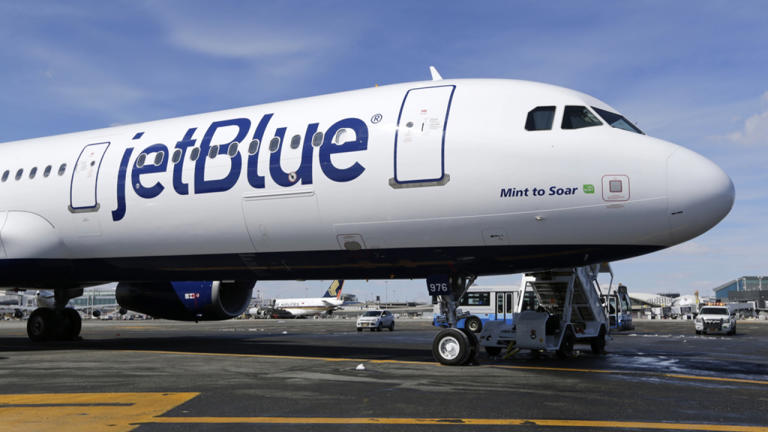JetBlue Airways’ recent announcement of a substantial overhaul in its operational strategy marks a bold move aimed at adapting to evolving market conditions. This strategic shift follows a federal court ruling that halted JetBlue’s proposed $3.8 billion acquisition of Spirit Airlines, which would have significantly altered the budget airline sector in the United States.
In response to changing circumstances, JetBlue has opted to discontinue several routes that were deemed unprofitable. This decision underscores the airline’s commitment to optimizing its route network and focusing on routes with higher potential for profitability. By streamlining its operations, JetBlue aims to enhance both efficiency and customer satisfaction, ultimately positioning itself for long-term success in the competitive aviation industry.
The reshaping of JetBlue’s operational strategy reflects a proactive approach to addressing challenges and seizing opportunities in the market. With a renewed focus on delivering value to customers while maximizing operational effectiveness, JetBlue is poised to redefine its service offerings and strengthen its competitive position in the airline industry. This strategic pivot underscores JetBlue’s commitment to adaptability and innovation as it navigates the dynamic landscape of air travel.
The Catalyst Behind JetBlue’s Operational Overhaul
JetBlue’s recalibrated strategy places a strong emphasis on optimizing its route network to ensure that each flight path not only meets but exceeds the profitability threshold. This decisive action was prompted by the unexpected blockade of the proposed JetBlue-Spirit merger, driven by antitrust concerns that anticipated negative implications for competitive fares and options available to travelers.
The court ruling highlighted the significance of maintaining a competitive and diverse airline market, prompting JetBlue to reassess and refine its operational approach. “With less aircraft time available and the need to improve our financial performance, more than ever, every route has to earn its right to stay in the network,” stated a JetBlue representative.
This strategic refocus occurs amid ongoing challenges, including a constrained fleet resulting from the grounding of approximately a dozen Airbus aircraft. These aircraft are undergoing inspections for issues associated with their Pratt & Whitney engines, placing additional pressure on the airline to maximize the efficiency and profitability of its operational assets.
In response to these challenges, JetBlue is taking proactive steps to optimize its route network, ensuring that resources are allocated effectively and that each route contributes positively to the airline’s overall financial performance. By prioritizing profitability and operational efficiency, JetBlue aims to navigate through these challenges and emerge stronger in the competitive airline industry landscape.
A Closer Look at the Affected Routes and Cities
JetBlue’s route optimization strategy involves discontinuing service to several domestic and international destinations. Specifically, the airline will fully withdraw from markets in Kansas City, Missouri, and Newburgh, New York, in addition to international routes departing from Bogotá, Colombia; Quito, Ecuador; and Lima, Peru.
This recalibration also encompasses numerous routes from Fort Lauderdale, Florida, affecting cities such as Atlanta, Austin, Nashville, and New Orleans, among others. Furthermore, JetBlue’s operations in Los Angeles will see reductions in flights to destinations like Cancun, Las Vegas, Miami, and San Francisco, among others.
These strategic adjustments aim to streamline JetBlue’s route network, focusing resources on routes with higher demand and greater profitability while phasing out those that do not meet performance criteria. By optimizing its route portfolio, JetBlue seeks to enhance operational efficiency and financial performance in a competitive airline market.
The Path Forward: Enhancing Profitability and Customer Experience
In response to these strategic realignments, JetBlue maintains its unwavering dedication to providing an exceptional travel experience for its passengers.
Through the reallocation of resources toward more lucrative routes and the optimization of aircraft ground time, the airline aims to significantly mitigate the likelihood of delays, thereby enhancing overall customer satisfaction. “These adjustments will enable us to deploy our fleet more effectively, increasing flight frequencies on routes that perform well from JetBlue’s focus cities.”
JetBlue’s strategic consolidation is not merely a reactive measure to external pressures but a proactive initiative aimed at bolstering its competitive position. By prioritizing profitability and operational efficiency, JetBlue is well-positioned to navigate the dynamic aviation landscape with agility and foresight, ensuring it continues to deliver high-value and gratifying travel experiences to its clientele.
As the aviation industry continues to evolve, JetBlue’s adaptive strategies underscore its commitment to resilience and innovation, laying the foundation for a future where it remains a preferred choice for travelers seeking reliability, comfort, and value.
